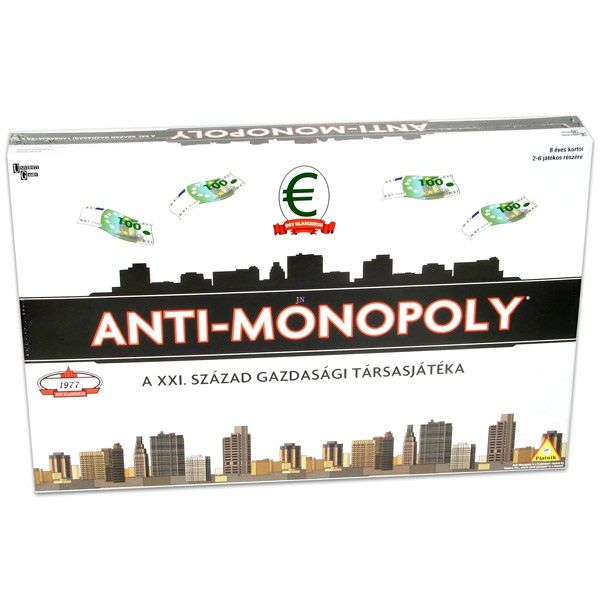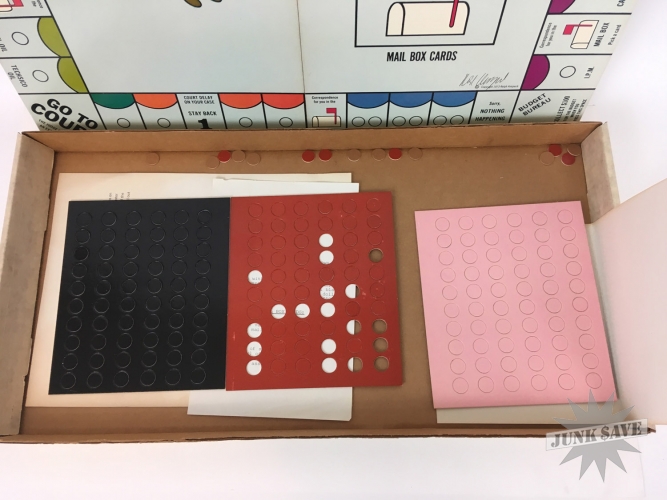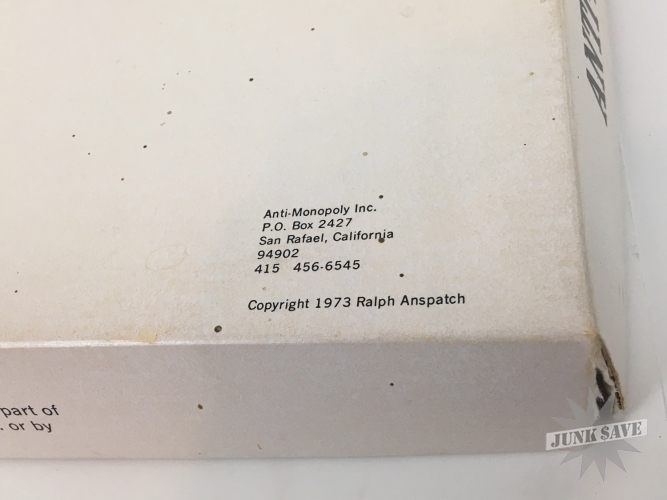

George was an advocate of the single-tax theory, which essentially is that governments should tax land and only land.īoth Magie’s commitment to George’s principles and the resemblance to the latter-day “Monopoly” are obvious in “The Landlord’s Game,” for which she received a patent in 1904. Having been introduced by her father to the writings of politician, economist and anti-monopolist Henry George, she hungered to demonstrate the evils of accumulating great wealth at the expense of others.

Her most influential patent was yet to come. She was also a female inventor with a patent by age 26-unheard of in 19th-century America-after coming up with a “type writing machine” in 1893 that facilitated paper moving through typewriter rollers.

Magie was an actress, poet and writer of short stories whose works echoed her recurring themes of romance, pain and unfairness.

But she wasn’t just another anonymous employee, and certainly no shrinking violet: In protest of her low wages of $10 a week, the staunch feminist garnered national headlines by taking out an advertisement and offering herself for sale to the highest bidder as a “young American woman slave.” Lizzie Magie moved to the Washington, D.C., area in the 1880s and worked as a stenographer and typist at the Dead Letter Office. James Magie later worked as a newspaper editor, further exposing his daughter to an intellectual and political atmosphere. In 1858-eight years before her birth-her father, James Magie, accompanied Abraham Lincoln as the latter traveled throughout Illinois debating politics with Stephen Douglas. Talented, outspokenĮlizabeth “Lizzie” Magie was born to be political. So Magie’s “The Landlord’s Game,” first patented in 1904 and an unmistakable forerunner to the Parker Brothers classic, not only fell short of its mission but led to the modified, more commercialized version that made its owners millions of dollars.įor decades, Magie didn’t even get credit for her role in establishing the game and arguably being its principal inventor. But she inadvertently ended up laying the groundwork for a historically popular game that in many ways celebrates that very premise.Īnyone who has ever played “Monopoly”-and that is millions of us-knows its goal is to accumulate more land and monetary wealth than your opponents, or to bankrupt them out of the game. game: Lizzie Magie sold her patent for “The Landlord’s Game” to Parker Brothers for $500 and no royalties.Īll Lizzie Magie wanted was to make a statement criticizing the inequities of wealth. This same informational sheet states that the Anti-Monopoly Committee was formed because “it is necessary to organize an Anti-Monopoly Party and remove the monopolists from economic, educational, and political power.Anti-monopolist had patented forerunner to iconic U.S. Leaflets indicates that 403,000 copies of 102 leaflets, issued in 19, were distributed in the community. The committee is not included of the list of recognized student groups in the student organization directories in the 1970s.Īn informational sheet included with the partial collection of For an undetermined period of time, the committee used Norton Unionįor a mailing address. Robbins was the author of the publications of the committee available in this collection. During this time an organization known as the Anti-Monopoly Committee emerged. The instructor for a course entitled Monopolies and U.S. In the course catalogs for the period he is listed as Robbins is listed in the university directories for 1973-1977 as an instructor in the Social Sciences College. The Social Sciences College, which had as its purpose bringing people together to study radical social theory, was one of those colleges.
#ANTI MONOPOLY 1973 SERIES#
In 1967 the State University of New York at Buffalo developed a plan for the establishment of a series of colleges with special interests.


 0 kommentar(er)
0 kommentar(er)
